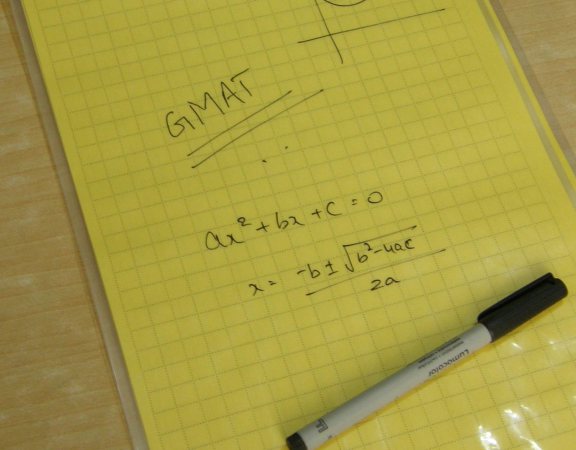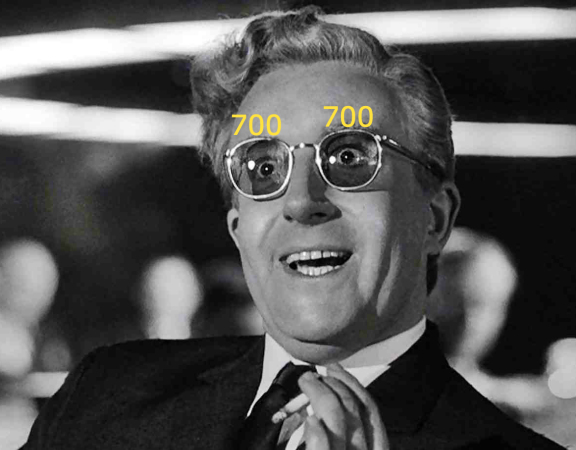How to “cheat” on the GMAT
Like most exams, the GMAT has had it’s share of cheating scandals, including one person who sat for the GMAT no less than 212 times in two years. While we definitely don’t condone trying to outsmart your future school and the Graduate Management Admissions Council (GMAC), there are a few legal strategies that can help you get an edge on test day.
1. Make a crib sheet
The GMAC prohibits a laundry list of items, from rulers to water bottles. And while you certainly can’t bring notes into the testing center, there’s nothing illegal about writing formulas or reminders from your memory on your scratch paper after the test begins.
It takes three seconds to write a formula you struggle with on your scratch paper, and it will save you from having to search your brain every time you come across a question that uses that formula. You can also use the provided scratch paper for any other tips you think might help, or even notation to keep your timing on track.
2. Spot the answer
Though there’s no prizes for finishing early on the GMAT, sometimes you need to go a bit faster than you would like in order to finish all the questions before the clock runs out. There are plenty of strategies to help you zero in on the right answer as quickly as possible, and mastering process of elimination will help tremendously.
With quant questions, you might be able to quickly test out a few of the answer choices. If one of them fits and you’re running out of time, choose that answer and move on. When it comes to Sentence Correction, once you eliminate the answer choices with obvious errors, you’ll likely be stuck between two choices, and often one will be more awkward or wordy than the other. When in doubt, choose the shorter of the two. With Critical Reasoning and Reading Comprehension (especially inference questions), the vague answer is usually better than a specific answer that uses certainties such as “must” or “always.”
Of course, this isn’t the best strategy to employ all the time. But when you need to save a few seconds, it can be incredibly helpful.
3. Peek at old questions
The GMAC has a treasure trove of old questions and AWA essay prompts, many of which are freely available. While you’ll never see old verbal and quant questions reused on the test, GMAC does recycle AWA prompts, which make them a great resource to practice with. Though not identical, old verbal and quant questions closely resemble the questions you will see on the actual exam, so you can still get a “sneak peek” of what you’ll face on test day. If you can correctly answer a question in one of the GMAC practice tests about the ratio of apples and oranges, you can probably answer a question about the ratio limes and lemons on the actual exam.
4. Lower your stress
Stress can have a huge impact on your test performance, and there are a number of body hacks that can give you an edge for the exam. Of course, make sure you’re well-rested and eat a protein-rich meal beforehand. But recent studies suggest that simply sitting up straighter in your chair can lead to more confidence, which in turn can lead to better scores. And if you’re stressed, breathe deeply to relax your mind and trigger your body’s “relaxation response.” When it comes time to take your allotted break, eating something with glucose (i.e., a few pieces of candy) can give your brain a jump start.
None of these strategies are prohibited by the GMAT, and we encourage you to take advantage of them. Come test day, these tips could help give you the point boost you need to hit your target score. Good luck!





